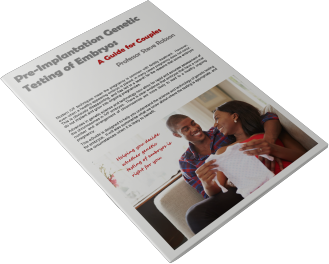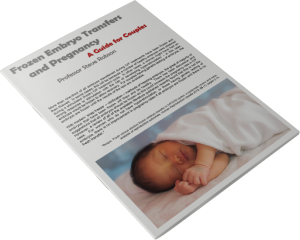Our Services
IVF
What is IVF?
IVF (in-vitro fertilization) – is a medical treatment that has been in use for more than 40 years. It was first invented to allow pregnancy where a woman’s fallopian tubes are blocked. Today, the technology of IVF has been developed to the point where it may be used for many different conditions.
IVF is used to treat not only infertility in women, but in men, and in the treatment of genetic (inherited conditions), as well as to preserve fertility in cases of cancer. In Australia, almost 14 000 IVF babies are born every year.
Professor Robson
and IVF treatment
Steve Robson has been involved in IVF treatment for more than 20 years. He successfully completed two years of full-time subspecialty training in 1998-99 at the University of Adelaide Reproductive Medicine Unit. During that time he won the Fertility Society of Australia’s Young Clinician Prize and was awarded the Brown Craig Fellowship to study in Canada.
Steve has a special interest in male fertility and was involved in development of the surgical and needle techniques of sperm retrieval that are widely used by IVF clinicians to this day. He continues research in IVF and has published papers in the world’s most prestigious IVF journals, Fertility and Sterility and Human Reproduction.
IVF treatment
Many women and couples will face IVF treatment.
IVF is a safe and effective medical technology used in the management of many conditions, from endometriosis to male fertility, and where genetic conditions are present in families.
While IVF has a reputation for complexity and emotional challenge, in most cases women and couples will find IVF easy to navigate and undergo. To dispel the myths and misinformation, and answer your questions in this comprehensive Guide.
Download the
Guide to IVF

Insemination
treatment
Many women and couples will face a choice about fertility treatment. Intrauterine insemination (IUI) is one option in this setting. IUI is typically used when there is no obvious cause for a fertility delay – the fallopian tubes are not blocked, and the sperm is normal or almost normal. This situation is commonly termed ‘unexplained infertility.’
Despite IUI having been used in fertility treatment for many decades, the scientific evidence underpinning its use is somewhat difficult to interpret. To assist in your decision-making, Professor Robson has prepared a detailed Guide for you.
Download the Guide to
insemination treatment

Embryo Genetic
Screening in IVF
Modern IVF techniques mean the pregnancy is common with fertility treatment. However, even when a healthy-appearing embryo is placed, in many cases pregnancy does not occur. This has led to a search for the reasons that some embryos do not implant and grow into ongoing pregnancies.
Advances in genetic science and technology now allow for rapid and accurate assessment of the chromosomes in IVF embryos. There is clear evidence that embryos that have a normal number and arrangement of chromosomes are more likely to lead to a healthy ongoing pregnancy.
Professor Robson has prepared a detailed Guide to genetic testing of embryos in IVF to assist in your decision making.
Download the Guide to
Embryo Genetic Screening

Further fertility information
There are many topics of interest to women and couples planning for pregnancy, or undergoing IVF treatment. You can download detailed Guides prepared by Professor Steve Robson below:
Contact us
Please fill in the form below and we’ll get back to you. Alternatively please call us on 1 300 854 105 or email us at Help@expertfertility.org





